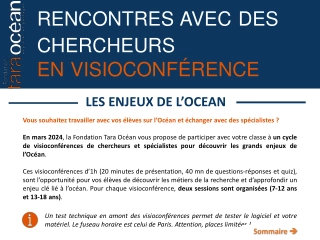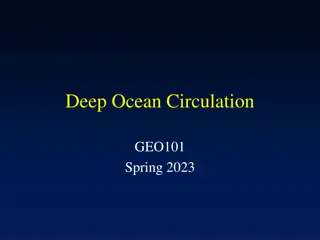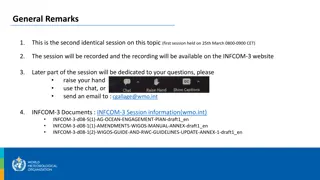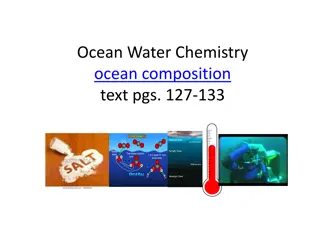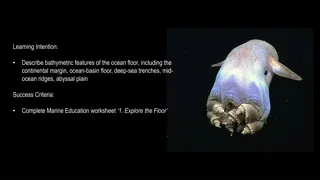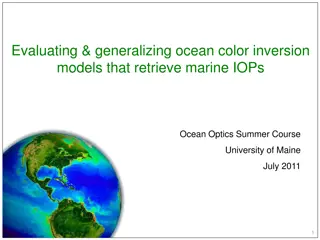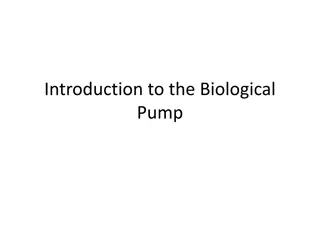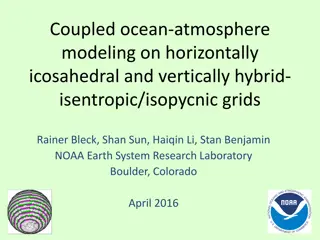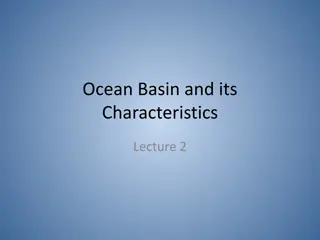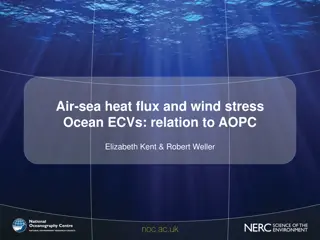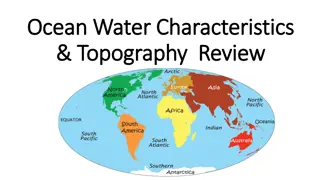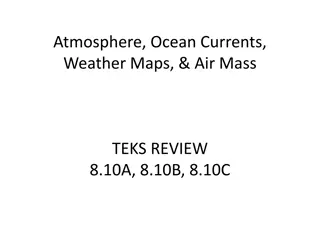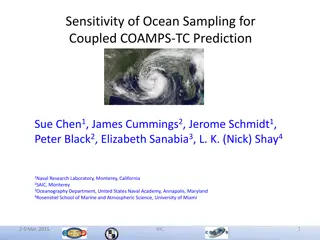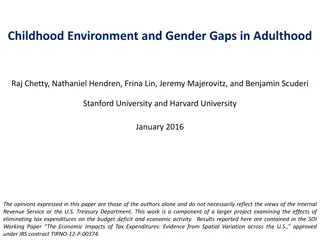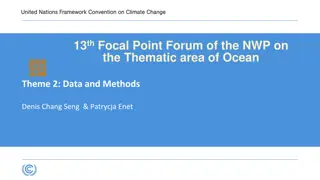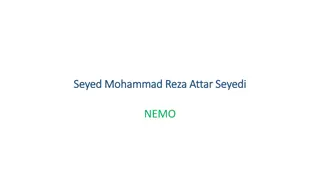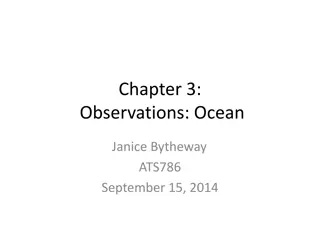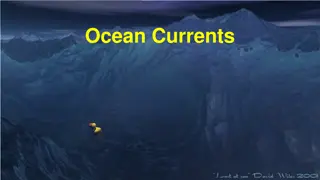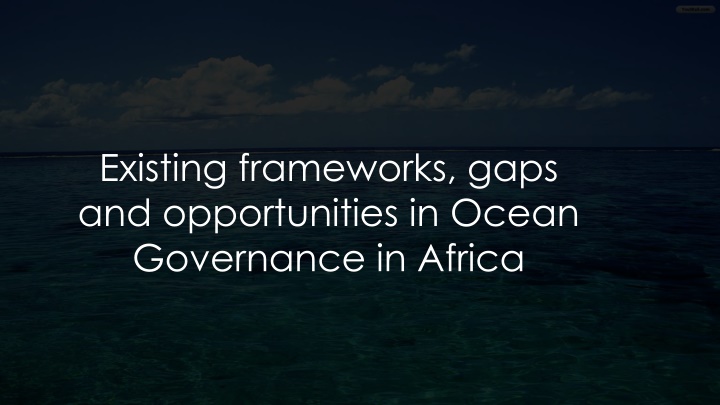
Ocean Governance Frameworks and Gaps in Africa
Explore existing frameworks, gaps, and opportunities in ocean governance in Africa, including key global issues, African Union frameworks, and challenges such as weak institutional frameworks and stakeholder engagement. Discover the complexities of managing coastal and marine resources, gaps in science-based management, and the need for enhanced coordination and transparency in ocean governance.
Download Presentation

Please find below an Image/Link to download the presentation.
The content on the website is provided AS IS for your information and personal use only. It may not be sold, licensed, or shared on other websites without obtaining consent from the author. If you encounter any issues during the download, it is possible that the publisher has removed the file from their server.
You are allowed to download the files provided on this website for personal or commercial use, subject to the condition that they are used lawfully. All files are the property of their respective owners.
The content on the website is provided AS IS for your information and personal use only. It may not be sold, licensed, or shared on other websites without obtaining consent from the author.
E N D
Presentation Transcript
Existing frameworks, gaps and opportunities in Ocean Governance in Africa
Global setting on Ocean Governance frameworks United Nations Convention on the Law of the Sea (UNCLOS) over-arching global legal framework for oceans and foundation of ocean governance at continental, regional, and national levels MEAs Biodiversity, Pollution, Meteorological, Maritime, Climate Change Agenda 2030: Several interlinked SDGs are essential to the ocean and seas Anchored on Goal 14 Life Below Water facilitating actions for ocean sustainability and fostering greater integration in ocean governance. Key global governance issues: ocean management occurs in silos, sector by sector, with poor coordination between institutions. Management of aquatic environments is implemented across several economic sectors, jurisdictions, and spatial scales
Existing African Frameworks Categories African Union Frameworks Sub regional Frameworks Regional Economic Communities (RECs) Regional Seas Programmes Regional Fisheries Management Organizations (RFMOs) Ports and harbors frameworks National Frameworks
Key Gaps in Ocean Governance Defining characteristic of governance of coastal and marine resources in Africa is the complexity, multiplicity and overlapping of mandates and jurisdictions with weak institutional frameworks. While several mechanisms for ocean governance exist, gaps and duplication remain. Cooperation and coordination of the frameworks across sectors has always proved challenging. Oceans issues not on the high table growing political will
Key Gaps in Ocean Governance weak science-based management - insufficient valuation of ecosystem services; centrality of ecosystem-based management in decision- making; understanding of cumulative impacts, including in land-sea interfaces weak implementation and enforcement insufficient stakeholder engagement and in decision-making processes hindering effective implementation. Coastal communities, women and youth are often not included as major stakeholders in management and decision- making transparency and accountability issues in ocean institutions
African Union Frameworks Agenda 2063 of African Union Lom Charter on Maritime Security and Safety and Development in Africa 2050 Africa s Integrated Maritime Strategy African Continental Free Trade Area Africa Blue Economy Strategy Bamako Convention New Partnership for Africa s Development Libreville Declaration on Health and Environment in Africa
Gaps in the African Union Frameworks
Integration and Coherence: existing ocean governance frameworks remains isolated and not fully integrated into the AU policy framework, leading to fragmented efforts II. Sector-Specific Focus: Many AU strategies, such as the Policy Framework and Reform Strategy for Fisheries and Aquaculture, focus on specific sectors rather than a holistic approach to ocean governance. A heavy maritime security focus, creating an imbalance between security and developmental goals for a blue/ocean economy III. Economic and Environmental Balance: Few strategies emphasize the protection of marine ecosystems or the economic potential of coastal and marine resources. Strategies often trade and economic frameworks are enhanced but not explicitly addressing the potential of coastal and marine resources as significant socio-economic drivers. While some strategies focus heavily on environmental and social pillars without considering economic aspects. I.
VI. Health and Environmental Linkages: Some strategies imply that environmental degradation is linked to human health but fail to include health aspects comprehensively in ocean governance. VII. Adaptability and Emerging Issues: Existing frameworks lack flexibility to adapt to new and emerging issues such as illegal and illicit exploitation of resources, climate change and rapid economic growth impacts on marine ecosystems.
What works in the African Union Frameworks Agenda 2063: widely recognized for its comprehensive approach to sustainable development, including ocean governance. It aims to transform Africa into a global powerhouse by promoting inclusive and sustainable development. II. Africa Blue Economy Strategy: focuses on harnessing the potential of Africa's blue economy for economic growth, job creation, and environmental sustainability. It emphasizes the sustainable use of marine resources. I.
Sub Regional Frameworks REGIONAL ECONOMIC COMMUNITIES (RECS) REGIONAL SEAS PROGRAMMES REGIONAL FISHERIES MANAGEMENT ORGANIZATIONS (RFMOS)
Gaps in the Sub Regional and National Frameworks
Poor Connectivity: Weak connections between natural resource and economic sector management - leads to unsustainable practices and parallel efforts. The inter-connection of freshwater/transport bodies and marine ones barely exist I. Mechanisms for Economic Advancement: RECs weak effective mechanisms to advance the economic aspects of oceans II. III. Management Mandate: RSP/Conventions traditionally do not have a direct mandate to manage or regulate economic activities. Regional maritime transport and ports agreements face challenges in implementation Coordinated Approach: While RFMOs and RSP promote a coordinated approach to marine resource management, the multiplicity of instruments can lead to duplication of roles. IV.
National Frameworks Unclear mandates on oceans: ministries, departments and management committees, cities, blue economy, port authorities, ICZM committee, local governments, thematic task forces on the landward side but with conflicting mandates Several successful ocean governance frameworks exist III. Mostly central/national governments managing the seaward side of coastal and marine environment and their resources. I. II.
RFMOs are effective in promoting coordinated regional approaches to the long-term conservation and sustainable use of fisheries resources. Regional Seas Programmes: e.g. Abidjan and Nairobi Conventions, strong on enhancing regional cooperation in the protection, management and development of marine and coastal environments including transboundary aspects Ports management: sub-regional port associations under Pan-African Association for Port Co-operation (PAPC) fairly strong on cooperation in matters port development in Africa 1. 2. What works in the sub regional Frameworks 3.
There are opportunities that will enable the use of marine resources in ways that keep them healthy, productive, safe, secure, and resilient. Strengthened Continental Framework: Development of a continental institutional structure for enhanced coordination among national, regional and sub-regional bodies would facilitate unified actions in ocean governance. I. Opportunities in African Ocean II. Unified African Voice: creation of common policy positions, a stronger voice and enhancing Africa s influence in international fora. Governance III. Accelerated Implementation: Leverage the African Union's political leadership to mobilize stakeholders and fast-track the implementation of existing instruments, with a focus on compliance and enforcement.
vii. Cross-Sectoral Cooperation: cooperative linkages to institutionalize cross-sectoral mechanisms, strengthening institutional frameworks to enhance coherence across governance structures, avoid duplication for effective implementation. viii.Holistic Approaches: Encouraging integrated management approaches (blue economy) that recognize the interdependence of sectors, fostering synergies for sustainable ocean governance. Opportunities in Ocean Governance ix. Promotion of investments: Opportunities for African governments and stakeholders to mobilise and pool together financial and technical resources for implementation.
ix. Widening Inclusivity and Empowerment in Ocean Governance: Expansion of stakeholder engagement in management and decision-making, including women, youth, civil society, and the private sector, to optimize resource use and improve ocean governance outcomes. Private Sector Partnerships: Foster systematic engagement of the private sector to leverage their expertise and resources in ocean governance initiatives. x. Opportunities in Ocean Governance xi. Advancing role of science in policy making: Ability to strengthen decision-making on ocean- based economy and ocean management through use of scientific information and data and strengthening knowledge vase and networks and aaddressing institutional and human resource gaps
Thank you Robert Wabunoha robert.wabunoha@un.org

